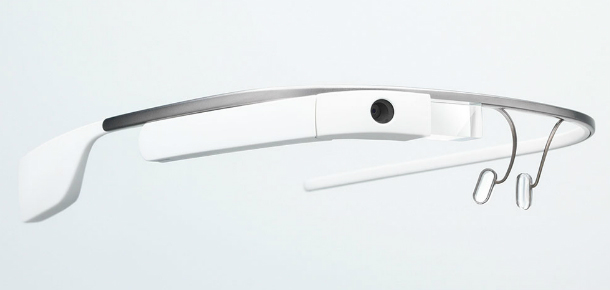Google Glass, the not-yet-released product promising to integrate a computer into a pair of glasses, appears to be one of the more controversial tech product announcements in recent history. First, there’s the most obvious challenge for Google of figuring out to market the device as something normal. According to a recent Forbes article, even Facebook’s CEO Mark Zuckerberg asked Google’s co-founder Sergey Brin, “How do you look out from this without looking awkward?” Judging by its current advertising campaign, Google hopes to pitch Glass as worn by cutting-edge, creative individuals, from skydivers to amateur pilots. As we all know though, a product doesn’t achieve commercial success until the general public agrees it’s something they’d like to own. A pair of glasses that reminds people of the Terminator or a member of the Borg from Star Trek has a real roadblock to mass adoption.
The New York Times reports Google partnering up with eyeglass makers, including Warby Parker, to produce a variety of designer frames for Glass. Additionally, the screen and accompanying hardware powering Glass are designed to easily snap onto many different frames. While this is surely a step in the right direction for Google, other challenges include the design of the user interaction. The user doesn’t want to look foolish, nerdy, or crazy when he or she issues Glass commands in public.
The bigger controversy is a growing dislike of the video recording capabilities of Glass. Seattle restaurant The 5 Point Cafe fired the first salvo against Glass with a recent Facebook post declaring the product banned. Dave Meinert, 5 Point’s owner, acknowledges he made the announcement partly in jest and to generate a reaction. At the same time, Meinart says his comments are based in truth because he feels his patrons don’t want to be secretly videotaped.
A website called Stop the Cyborgs attempts to organize a movement against Google Glass, offering free downloadable images, along with commercially-produced stickers, posters, and T-shirts. The website also provides links for U.S. residents to contact their representatives (and for UK residents to contact their Members of Parliament) to express concerns and aggregates other online articles against Glass.
Mark Hurst, author and founder of the Creative Good consulting firm, claims Glass will disrupt society as we know it. Hurst argues the real issue with Glass becomes its ability to change the experience of those around a wearer versus the wearer’s own experience. When you talk to people wearing Google Glass, you’ll always wonder if you have their undivided attention. With the speech-to-text capabilities Google already has, perhaps Glass will allow recording the speech of individuals around the wearer, with easy ability to post portions of it as quoted text? Hurst gives an example of a bus with 49 riders not wearing Glass. Person number 50 gets on wearing Glass, and the experience changes for the other 49. Everything they say or do may now be recorded and stored permanently on Google’s servers, where it gets indexed and processed.
Glass does include an indicator light that lights up when it’s recording, and a Google representative recently responded to the 5 Point Cafe ban by saying, “It is still very early days for Glass, and we expect that as with other new technologies, such as cell phones, behaviors and social norms will develop over time.”
It was only a matter of time before we saw this level of integration of computer hardware. We’ve witnessed the progression of computers from devices that required entire rooms to boxes anyone could place on a desk to ever shrinking notebook computers, tablets, and smartphones. It seems the goal we’ve always had, even if we didn’t consciously realize it, was making a computer so portable that we could take it everywhere without any effort. The real question is one of data collection. Now that we really can take these devices everywhere and upload live content to massive servers on the back end for further processing and storage, we have to set expectations. A good start might be the final release version of Glass featuring a frame which changes color and lights up conspicuously when recording. I think, at the very least, the people around a Glass user have the right to know they’re being recorded. I’m not sure a small indicator light is sufficient.
More broadly though, I believe we need to start asking ourselves how much information we’re willing to keep shoveling into gigantic computer systems owned by a select few entities. It’s one thing for devices like Glass to network back to the owner’s home computer, but entirely another to be permanently linked to Google’s cloud. When all the information captured streams directly to Google, the opportunity is lost for the user to act as a content filter. The guy who simply wants to record a funny reaction to his prank with Glass might wind up submitting a considerable amount of unintended background information to Google along with it. Innocent bystanders caught while he was turning his head get their information permanently uploaded and indexed too. In a normal situation, all of that video or audio footage would be edited out and deleted before the final product ever made it to a server in the cloud.
With all of the concern and paranoia over Google Glass’s capabilities, I wonder how well they record at night?


Comments are closed.